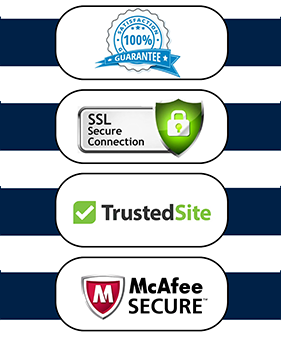
ISTQB CTFL-Foundation Exam Dumps
- Exam Name: ISTQB Certified Tester Foundation Level Exam
- Certification Name: ISTQB Foundation Level Certification
- Exam Code: CTFL-Foundation
- Total Questions Provided: 273
- Last Updated: Apr 12, 2025




Navigating the ISTQB CTFL-Foundation Exam: A Roadmap to Success
Fundamentals of Testing
The ISTQB CTFL-Foundation exam delves into the core principles of software testing, equipping you with a solid understanding of the fundamental concepts. From the definitions of testing and its objectives to the different types of testing, this section lays the groundwork for your journey as a proficient software tester.
Testing Throughout the Software Development Lifecycle
Successful software testing requires a holistic approach, and the ISTQB CTFL-Foundation exam ensures you grasp the importance of integrating testing at every stage of the software development lifecycle. This comprehensive coverage enables you to contribute effectively to the development process and ensure the delivery of high-quality software.
Static Testing
The ISTQB CTFL-Foundation exam delves into the realm of static testing, equipping you with the knowledge to identify and address defects early in the development cycle. This expertise in reviews, inspections, and walkthroughs empowers you to enhance the overall quality of the software project.
Test Analysis and Design
Crafting effective test cases is a crucial skill for software testers, and the ISTQB CTFL-Foundation exam explores the techniques and methodologies for test analysis and design. From equivalence partitioning to boundary value analysis, you'll gain the expertise to develop comprehensive and targeted test suites.
Managing the Test Activities
The ISTQB CTFL-Foundation exam also covers the essential aspects of test management, including planning, monitoring, and controlling test activities. This knowledge enables you to contribute to the efficient and effective execution of testing projects, ensuring the timely delivery of high-quality software.
Test Tools
The ISTQB CTFL-Foundation exam recognizes the importance of test automation and the strategic use of test tools. By understanding the capabilities and limitations of various testing tools, you'll be equipped to select and leverage the right tools to enhance the testing process and improve overall efficiency.
Career Benefits and Job Roles
Passing the ISTQB CTFL-Foundation exam opens up a world of opportunities for aspiring software testing professionals. With this certification, you'll demonstrate your commitment to the field, your comprehensive understanding of testing principles, and your ability to contribute to the success of software projects. Potential job roles include Software Tester, Quality Assurance Analyst, Test Engineer, and Test Analyst, among others, where you can apply your newfound expertise to drive innovation and excellence in software development.

Currently there are no comments in this discussion, be the first to comment!